Ground Reports
Two Kanpur Men, Faisal And Muzaffar, Get Death For Killing A 'Qafir' Wearing Kalawa And Tilak To Impress ISIS
Swati Goel Sharma
Sep 19, 2023, 11:36 AM | Updated Oct 09, 2023, 02:25 PM IST
Save & read from anywhere!
Bookmark stories for easy access on any device or the Swarajya app.
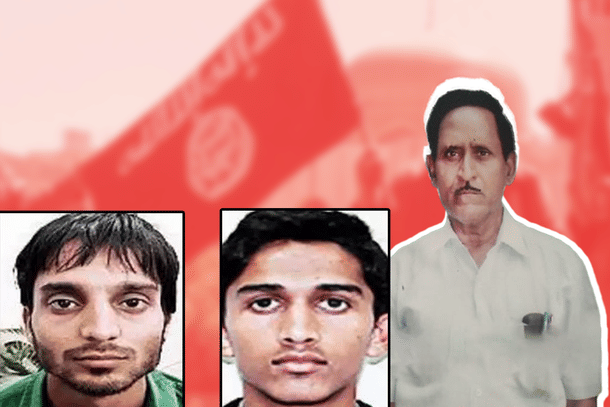
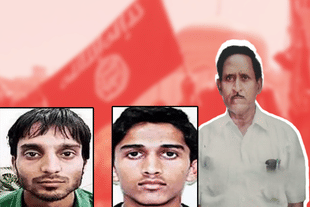
Seven years ago, a school teacher in Uttar Pradesh’s Kanpur district returning home on his cycle was shot multiple times to his instant death by unknown assailants.
When the police questioned the family for leads, the teacher’s kin said the deceased, a respectable man who everyone called ‘Guruji’ or ‘Panditji’, had no foes. They suspected no one, the family said.
The investigation languished for want of any leads, and as weeks turned into months, it waned. As the investigation eventually stalled, the family grappled with a haunting possibility: Had Ramesh Babu Shukla been mistakenly targeted?
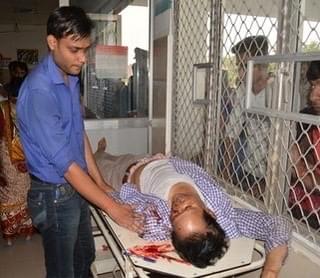
However, five months later, a devastating explosion on the Bhopal-Ujjain passenger train in Madhya Pradesh set off a chain of events that would reveal the unsettling truth.
The blast, which claimed ten innocent lives, marked the Islamic State’s first assault on Indian soil.
Enter Mohammed Faisal. Arrested in connection with the bombing, his confession unearthed a chilling link between the train blast and Shukla’s murder.
Faisal, along with Atif Muzaffar and Saifullah, had picked a random victim in Kanpur to impress the Islamic State of Iraq and Syria (ISIS). Shukla was chosen because the kalawa on his wrist and the tilak on his forehead made it evident that he was Hindu and thus a ‘qafir’.
The killers had been tasked to specifically kill a qafir, record proof of the killing and send the video to their ISIS handlers in Syria if they wanted to be given bigger responsibility.
Last week, the accused were sentenced to death by a special court in Lucknow of the National Investigating Agency (NIA) that took over the probe from Kanpur police, a year after Shukla’s death.
The victim, 60, was principal of and a Hindi and Sanskrit teacher at Swami Atmaprakash Brahmchari Junior High School in Kanpur.
The site of the murder was Jajmau chowki, which is around 30 kilometres from Shukla’s home in Vishnupuri colony of Kanpur city and barely a kilometre from his workplace. He cycled more than 60 kilometres daily between the school and his home.
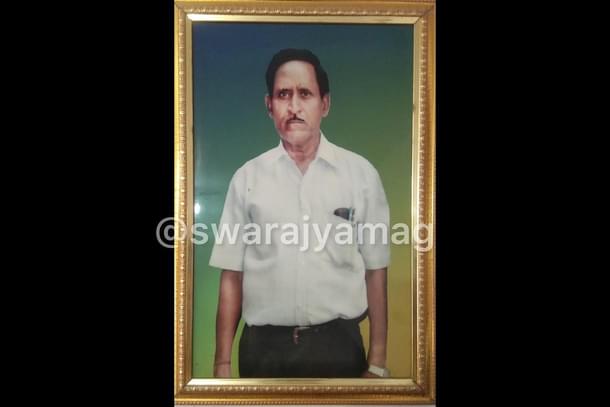
The first police case in the death was filed at Chakeri police station in Kanpur Nagar on 24 October 2016 — the day Shukla was killed (FIR number 884). After the terrorist link was revealed, the NIA filed another case in 2017.
In March 2017, one of the three accused, Saifullah, was killed in an encounter with the Anti-Terrorist Squad of Uttar Pradesh.
The NIA chargesheet, filed in July 2018, said the accused were “deeply radicalised by the ideology of the ISIS, a proscribed terrorist organisation, had sworn 'bayat' (allegiance) to the Islamic State and its leader Abu Bakr al-Baghdadi, and wanted to eliminate all those whom they believed to be disbelievers (qafirs)”.
To further the ideology of ISIS, they planned to target non-Muslims. Muzaffar was the Amir (leader) of the group and was influenced by the propaganda of Zakir Naik, the chargesheet said.
Faisal and Muzaffar, both residents of Kanpur, were awarded the death penalty and also fined Rs 5 lakh under section 302 read with section 34 of IPC.
They have been also sentenced to death, along with Rs 50,000 fine, under section 120B of IPC, besides being awarded the death penalty with fine of Rs 5 lakh under section 16(1)(a) of UA(P) Act.
They were also found guilty under section 18 of UA(P) Act and given life imprisonment with Rs 1 lakh in fine. They were further given three years in jail and a Rs 10,000 fine under the Arms Act.
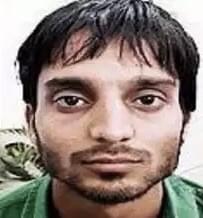
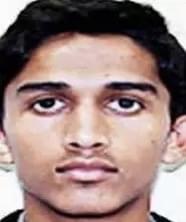
Swarajya talked to the deceased’s family a few weeks ago after the NIA pronounced the two men guilty of the offences while reserving the verdict on the quantum of their punishment.
Shukla’s younger son Akshay said the family had given up on ever finding about the killers or their motive when a mysterious phone call from an officer in Lucknow told them of the unthinkable: The murder was an act of terror and it had an ISIS angle.
"The officer asked me about the symbols my father wore that identified him as Hindu," Akshay told Swarajya. The realisation that his father’s cultural and religious identifiers had made him a target was a blow to the family.
Akshay said his mother has become paranoid about him and his brother leaving home wearing tilak or kalawa.
Akshay said that the sudden loss of the family’s primary earner also cast a long shadow of financial instability. Retirement was in sight for Shukla, yet a significant chunk of his earnings came from tutoring students at home. His dreams for his children's futures and his daughter's wedding lay unfulfilled.
At the time of his death, Akshay was in college and his elder brother was struggling to find a job.
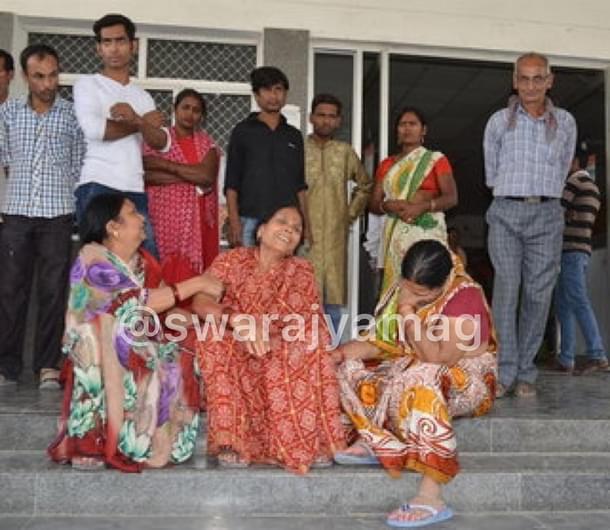
The Shukla family, after enduring immense pain, has finally found a semblance of stability, he said. Both brothers are now educators and earning, and their sister got married last year.
Besides the personal loss faced by the Shukla family, the tragedy serves as a reminder of the lurking menace of radicalisation in our society.
Swati Goel Sharma is a senior editor at Swarajya. She tweets at @swati_gs.





